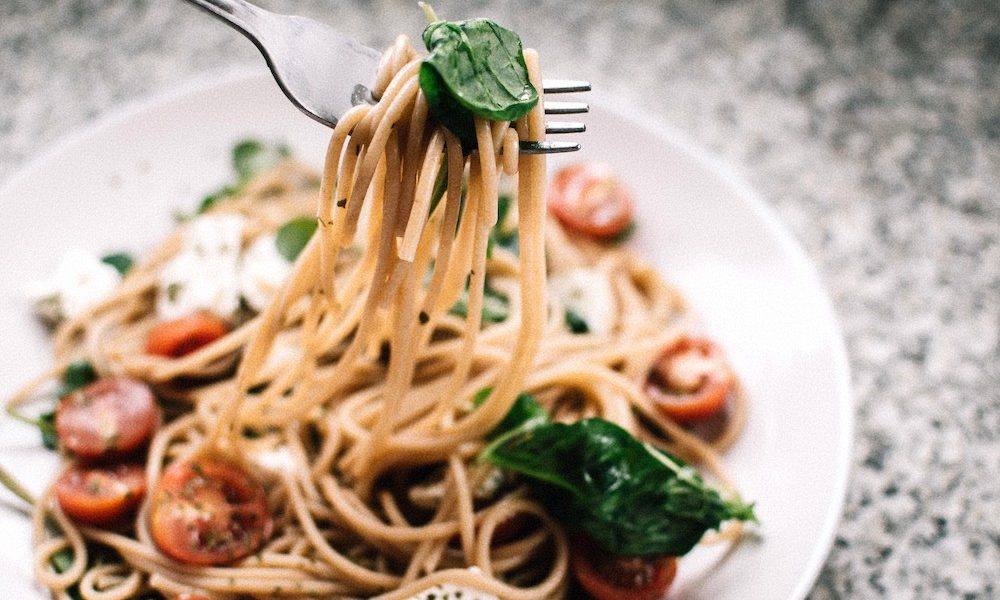Are you falling into the same thought patterns by trying to be ‘perfect’ with intuitive eating? Here are a few tips to dismantle the perfection mindset, and get back to living life.
BY: VINCCI TSUI, RD
At first glance, intuitive eating seems like it should be easy. After all, it’s about letting go of diet and food rules, “eating whatever we want”, and how we’re all “born intuitive eaters”. Sounds simple, right?
Many people come to intuitive eating when they’ve hit “diet rock bottom” — you’ve been on what feels like every diet and “lifestyle change” under the sun, only to see your weight yo-yo upwards and your list of “allowed foods” getting shorter and shorter.
You use an excessive amount of energy to “be good” and restrict during the day, only to find yourself binging or “emotionally eating” in the evening.
When it feels like dieting is all you know, it’s natural to approach intuitive eating like another diet— you read the principles as if they were rules, and you create an image in your head of the “perfect intuitive eater”:
You’ll only eat when you’re hungry and stop when you’re full.
You’ll “eat what you want,” but that’s because your body will crave a “perfect balance” of “healthy” foods and “treat” foods.
You’ll be happy in your body, and you’ll never feel the urge to diet again because your body will settle at its “natural weight”, which is certainly less than what it is now.
With so many expectations, it can be disappointing when you feel as though you’re not living up to the standards of perfection you’ve set up for yourself. If that’s you, here are a few things to remember that may help you get unstuck.
1. Don’t expect a cookie cutter result.
Part of what makes intuitive eating so hard to grasp is that unlike a diet, the end result can look different for everyone because of the flexibility and nuances for each individual. The “perfect intuitive eater” described above actually reflects many common misconceptions that people have about what intuitive eating is. If you’ve been learning about intuitive eating through blogs, articles, podcasts, and social media, you’re probably not getting the full picture and defaulting to the ‘perfection’ mindset that many chronic dieters have. If it’s accessible to you, working with a certified intuitive eating counselor or other helping professional experienced in intuitive eating can help individualize the framework for you.
2. Curiosity, not judgement.
We’ve been conditioned since our childhood days that it’s not enough to simply learn something; we should also master it or get something out of it. Whether it’s good grades or some other end goal, it takes the curiosity out of learning and turns it into a project.
But what would it be like to approach learning as though you were a child? Instead of thinking, “I need to master X so that I can get Y,” try approaching it with the attitude of, “What happens if I do X?” And instead of judging, blaming or admonishing yourself if X doesn’t work out, acknowledge the frustration or discomfort before moving on.
3. Practice patience and self-compassion.
Intuitive eating can be a s-l-o-w process, especially compared to starting a new diet. With dieting, all you have to do is know and follow the rules to “get it,” whereas there are more nuances to intuitive eating. Additionally, you’re constantly fighting messages from friends, family, loved ones, health professionals, and society in general that tell you that you should be dieting and trying to lose weight.
Remember that you are trying to undo years of diets, food rules, and body hatred with this work, and the stream of diet talk sadly doesn’t stop in its tracks when you decide to pursue intuitive eating. This is hard work, and reminding yourself of your strength and bravery to challenge the status quo will help you get through it.
4. Get Support.
Remember, you are not alone, and fortunately there are a growing number of people who are pursuing intuitive eating, as well as a growing number of health professionals who are providing support. You may start passively by following people on social media, but eventually, you will want to build a community of support around you, whether that is online, in-person through friends, family and loved ones, or working with a professional.
Wherever you’re at when in your intuitive eating process, know that there are resources and support to help you confidently step away from a diet culture that consumes your time and energy,
And live life on your own terms.
Adapted from the original article.
HEADER IMAGE: LISA FOTIOS
Vincci Tsui, RD is a former bariatric dietitian turned certified Intuitive Eating counselor and Health At Every Size(r) advocate. Based in Calgary, Canada, Vincci specializes in helping people untangle their messy relationships with food and their body, and works with individuals in-person and virtually through her private practice. Read more from Vincci at www.vinccitsui.com.

